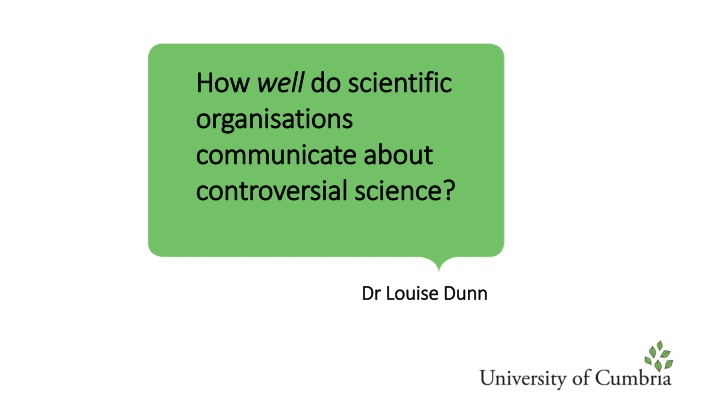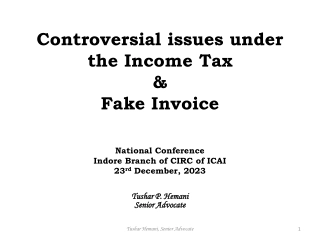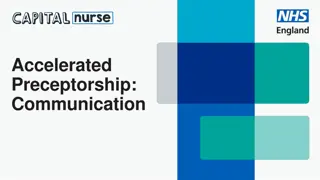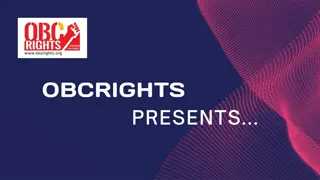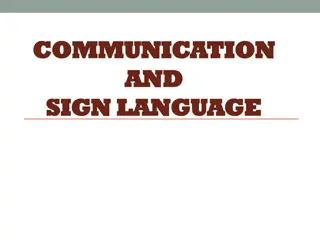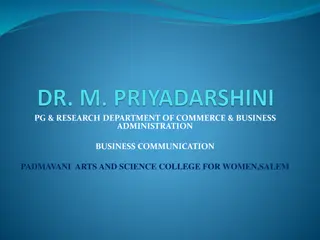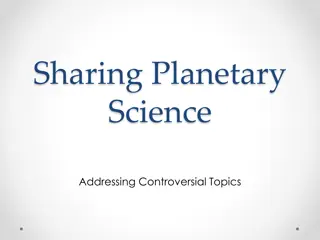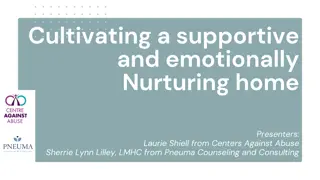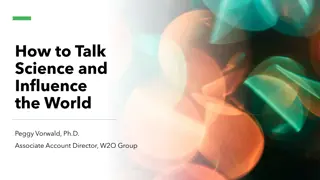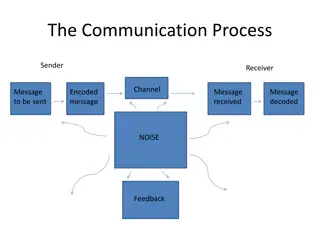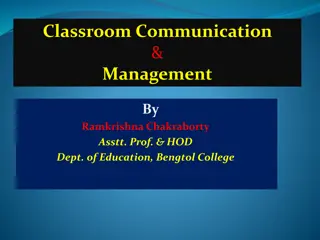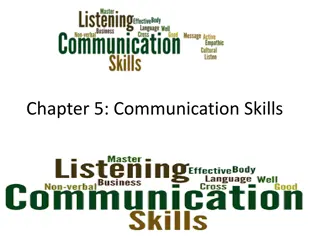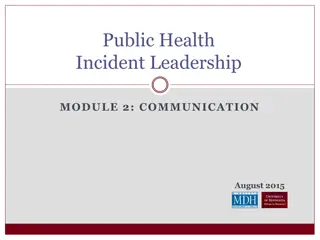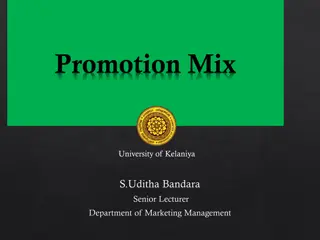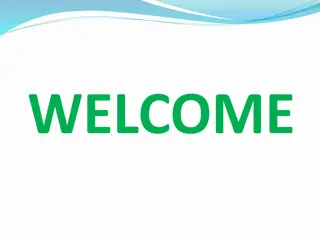Effective Communication Strategies for Addressing Controversial Science
In discussing controversial science topics, organizations must navigate communication challenges effectively. Dr. Louise Dunn shares insights on how scientific organizations can improve their communication approaches when addressing contentious scientific issues.
Download Presentation

Please find below an Image/Link to download the presentation.
The content on the website is provided AS IS for your information and personal use only. It may not be sold, licensed, or shared on other websites without obtaining consent from the author.If you encounter any issues during the download, it is possible that the publisher has removed the file from their server.
You are allowed to download the files provided on this website for personal or commercial use, subject to the condition that they are used lawfully. All files are the property of their respective owners.
The content on the website is provided AS IS for your information and personal use only. It may not be sold, licensed, or shared on other websites without obtaining consent from the author.
E N D
Presentation Transcript
How How well organisations organisations communicate about communicate about controversial science? controversial science? well do scientific do scientific Dr Louise Dunn Dr Louise Dunn
Science in Public Science controversies and the resultant crisis in public confidence: Chernobyl nuclear disaster, 1986; BSE & Mad cow disease (1986); MMR Vaccine and Autism (1988); Genetically Modified Organisms Frankenfood ; Nanotechnology grey goo ; gene therapy; climate change .. then . COVID19 Gap in the literature: Role of scientific organisations. Understanding of the organisational and cultural influences on scientific comms and engagement through the eyes of senior communications policy decision makers. Why does this matters? Communicating effectively about science can facilitate rational policy making, prevent harm, minimise risk and social and economic cost.
Key questions to ask ourselves Q2. To what extent is the deliberative ideal behind programmes of scientific engagement distorted in practice, and why? Q1. How are policies and strategies for engagement and communications activities influenced by the culture and interests of the organisation that they represent?
My Research Literature: Rooted in the literature of science and technology studies (STS), science policy, and science communications. Theory: Created and applied a theoretical framework derived from Jurgen Habermas s theories of communicative action. The analysis: The 5Cs (context, conduct, content, construction of knowledge, competence)
An Analytical Framework 1. The epistemological construction of knowledge and truth Knowledge and Human Interests (1972) 2. The context of the discourse Structural Transformation of the Public Sphere (1989) 3. The content of the arguments and claims Communicative Action (1984, 1987) 4. The conduct of the discussions and arguments Concepts from Discourse Ethics Moral Consciousness and Communicative Action (1993) 5. The communicative competence (skills) of the participants Concept from Universal Pragmatics (various publications)
Themes for vaccines: Familiar? Context: Difficult environment! Partisan politics and ideologies are influencing beliefs about science. Undermining of experts. Conduct: Culture impacts comms. Corporatisation of science. Strategic focus. Government control on the message. Instrumental activities. Lower standards in public life post-BREXIT. Hostility. Speaking out is high risk. Dialogue is high cost. Safety in numbers. BUT a recognition that change is needed, and new approaches emerging. Content: The infodemic ; misinformation & disinformation. Myth busting and rebuttals dominate, but not effective. Content needs to engage, connect and entertain. Gap in balanced, authoritative reference information sources. Hard to cut through the noise. Construction of knowledge: Science s preference for facts and data. Fallacy of one truth and one message . Failure to address fears about new technology, wider societal concerns, ethical and moral dilemmas. Positioning anti-science activists as irrational conspiracists. Labelling legitimate scepticism as anti-science. Competence: Lack of understanding of how to navigate the new environment. Uneven adoption of behavioural science & marketing techniques. Underestimating the public s intelligence. Lack of insight into how scientific institutions are contributing to the problem. Organisations motivated to do the right thing but facing internal barriers and a difficult external environment. Leading to a lack of co-ordination across scientific institutions and few reliable authoritative reference sources of information for the public during controversy.
